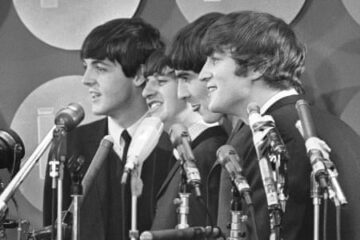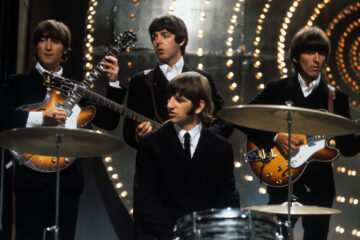George Martin: his deep classical knowledge was key to shaping The Beatles’s world-conquering sound. We take a look at the legendary producer’s classical musical influences
Although best known for his work in the pop world (particularly with The Beatles), producer Sir George Martin had a lifelong love of classical music which he put to great use over his career.
Born and raised in North London, Martin saved up for piano lessons as a teenager, desperate to perform the piano sonatas of Beethoven and Mozart. At school, meanwhile, Martin’s interest in classical music was further fuelled by a visit from the London Symphony Orchestra and their conductor Adrian Boult.
After serving in the Royal Navy during World War Two, Martin consolidated his grounding in music, studying composition, conducting and orchestration at the Guildhall School of Music. He also took up the oboe to ‘earn a bit of living’ – in later years, he cited Mozart’s Oboe Quartet, K370 as one of his favourite pieces.
How George Martin added classical music into The Beatles’s irresistible soundworld
Martin spent a brief time after his graduation working in the BBC’s classical music department, before his move to Parlophone records in London (a subsidiary of EMI) in 1950. At this time, he developed an interest in comedy recordings. In one of these, the actor Peter Ustinov sang in a ‘mock’ Mozartian opera style (see below).
Martin’s work with The Beatles, whom he famously signed in 1962, saw him gradually introduce classical music elements into their recordings, beginning with a string quartet arrangement to accompany Paul McCartney’s song ‘Yesterday’ in 1965. He later developed more complex orchestrations, including the famous glissando performed by a 41-piece orchestra in ‘A Day in The Life’ on the 1967 album Sgt. Pepper’s Lonely Heart’s Club Band.




